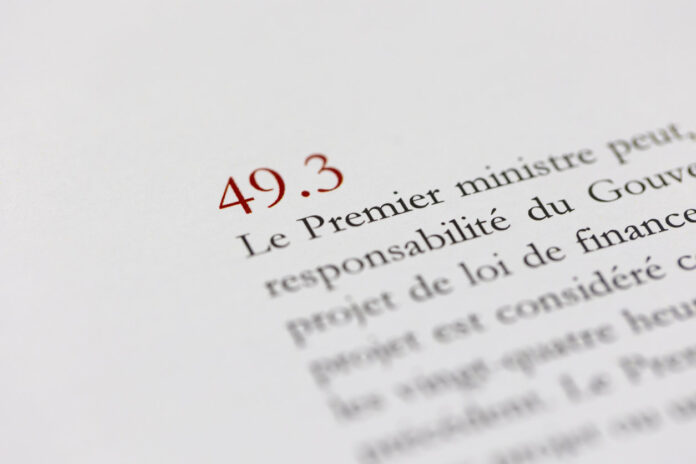Since January, pension reform has been on everyone’s lips and in everyone’s mind. From endless debates to positions, the question finally found a conclusion this Thursday, March 16 with the use of article 49.3 by the government of Elisabeth Borne. While the executive had affirmed that the use of article 49.3 was not on the agenda and that everything would be done to go to the vote, Emmanuel Macron preferred not to take any risk in the National Assembly and resort to a forced passage. What decisive internal exchanges led to this controversial decision?
The French were impatiently awaiting the week of the vote and still hoped to see the government back down in the face of the text of the pension reform. However, even if certain unions and members of the opposition feared this possibility, the surprise was great when Elisabeth Borne spoke. The Prime Minister thus gave no chance to the deputies, despite the support given by the Senate a few days earlier. According to information gathered by our colleagues from BFMTV, it was a conversation between Eric Ciotti, the President of the Republicans, and a close friend of the President of the Republic, which would have made Emmanuel Macron waver.
The president of the Republicans, Eric Ciotti, would have contacted, last Thursday, a relative of Emmanuel Macron, in order to inform him about the voting intentions of the members of his party. Indeed, according to the calculations made by Eric Ciotti, “there would be [eu] 30 votes from the LRs for the pension reform, 25 votes against and 6 abstentions”, as reported by BFMTV. Going to the vote would therefore have represented a too risky a solution for the executive, which had been counting on the adoption of this pension reform for several weeks already. Thus, around forty votes “for” were expected to be sure of voting for the reform without incident.















